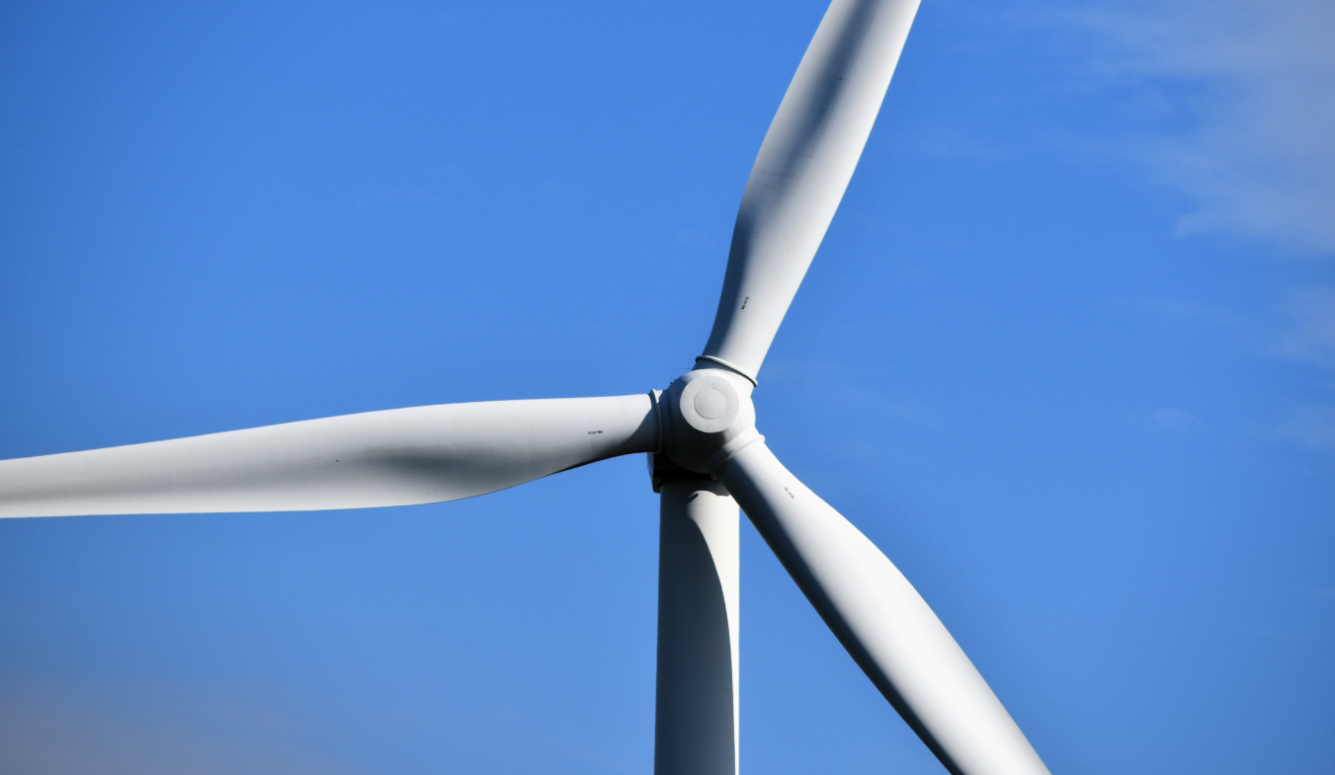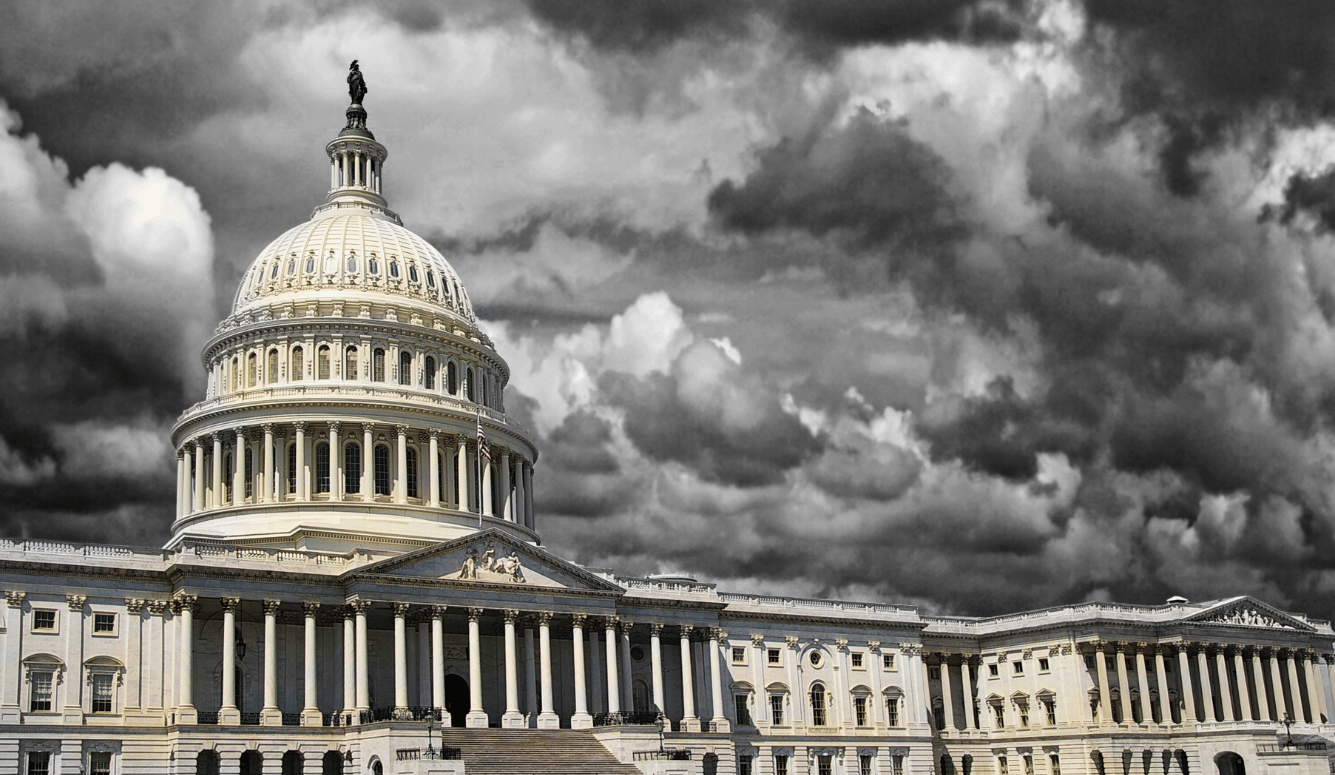Politics
The Carbon-Neutral Dumpster Fire
RTÉ’s ludicrous environmentalist docudrama Tomorrow Tonight reflects the Irish state’s perverse commitment to a politics of self-harm.

Dublin’s riots scored the bigger headlines, but Ireland’s biggest disaster last month was surely the futuristic climate-change docudrama Tomorrow Tonight. “Amateurish, smug and possibly the worst TV programme anyone has ever made,” was the verdict of Eilís O’Hanlon in the Irish Independent. It must be said that O’Hanlon is the scornful scourge of Irish progressivism in all its forms—sort of like Peter Hitchens in a dress—so no one expected her to enjoy it, and the paper in which her review appeared is the conservative voice of Middle Ireland at its most bovine.
@marklittlenews & @CarlaO_Brien present Ireland 2050: Tomorrow Tonight a scripted, docu-drama set 27 years in the future guiding viewers through the breaking news moments on a seismic night, as climate change pushes the planet to a moment of crisis!
— RTÉ One (@RTEOne) November 15, 2023
Tonight | 9.35pm | @rteone &… pic.twitter.com/FFY1J7eboN
She wasn’t wrong, though. Ludicrously earnest, Tomorrow Tonight has the makings of a camp classic. At one point, a space reporter interviews “Marcus Grift,” founder of the first Lunar colony. A cartoonish blend of Elon Musk and Jeff Bezos, Grift is “over the moon” about the birth of his first child but the reporter scolds him, “Back on the Earth that your daughter has never been to, most people face rising seas, harsher storms, more frequent droughts. With your resources, you could have been working on that challenge, but instead you’ve spent decades on what, I have to say, looks very much like an escape plan for the one percent.”
This ham-fisted ecological homily might expect a warmer reception from Ireland’s paper of record. The editorial board of the Irish Times have yet to find a progressive cause too daft to champion but even they had to admit the awful truth. Their reviewer Ed Power described Tomorrow Tonight as “a great glowing dumpster fire. Both dull and unintentionally side-splitting.” Power found its awfulness especially regrettable because: “The facts are undoubtedly 100 per cent accurate. And RTÉ is, of course, to be commended for reporting on the most significant existential crisis of the 21st century.”
That commendation may seem like a bizarre note on which to end a review of a “dumpster fire,” but this is the kind of worthy doublethink that made this abomination possible in the first place. Tomorrow Tonight is the result of a long process of self-radicalisation, and RTÉ has been pumping out similar efforts for years. There was My Best Sustainable Life, a reality show that followed a model, a drag queen, and a pair of comedians on their path to ecological balance. Doesn’t Cost the Earth was another similarly themed series about “life hacks” that can “actually save you money, while helping the planet.” And who can forget the time that RTÉ sent political reporter Paul Cunningham to the Arctic to look at ice melting and frown?
Although RTÉ gets some of its income from advertising, most of its funding comes from taxes. It’s unsurprising, then, that the government and broadcaster mostly agree on everything. Even so, on environmental issues, RTÉ is far more zealous. Providing Ireland with news, information, and entertainment is apparently too modest a brief—RTÉ proudly boasts that it shares “the ambitions of the United Nations’ Sustainable Development Goals.” It’s cagier about its partnership with Covering Climate Now, an international lobbying group which “assists news media” on covering “the defining story of our time with the rigor and urgency it deserves.”
Ireland is hardly unique in having a media and arts sector more liberal than society as a whole. Where it is unusual is how effectively that minority leverages its influence. RTÉ is based in affluent South Dublin, the heartland of the Green Party. Wiped out in 2011 after a disastrous spell in government, the Greens clawed back 7.1 percent of votes in the last election, helped along by uncritical coverage completely disproportionate to its electoral popularity. Although beset by the usual infighting of leftwing parties, the Greens, once again a minority coalition partner in government, use the ministries they get strategically.
In 2021, Minister Eamon Ryan’s Department of the Environment and Climate and Minister Catherine Martin’s Department of Culture and Arts announced plans to spend €2 million on art projects highlighting Climate Change. While Tomorrow Tonight was seen by everyone, mercifully few saw the exhibitions, installations, and happenings bankrolled by those millions.
One of them was Earthing, a music project exploring “the sounds of climate change. Translating deforestation, wind storms or water shortages into improvised original compositions.” Another installation involved planting flags in beaches that may be flooded in 2050. The flags were sustainably produced with fallen branches and organic cotton. Artist Fergal McCarthy says he hopes “to shape some of the conversations we need to have, in order to find a better way to live.” Línte na Farraige, meanwhile, was a light display erected along the coast. The Irish Times approvingly explained that the lights, which somehow represented future sea levels, were “designed to stimulate engagement between the public, researchers and Government on the immediacy of the threat.”
Who knows if these aspirations of shaping conversations and stimulating engagement were realised; the more pertinent question, surely, is whether or not the state should be funding propaganda at all. Perhaps it depends on the cause. The day after declaring war on Nazi Germany, Britain created a Ministry of Information. If that sounds Orwellian, it was. George Orwell himself broadcast British propaganda on BBC radio while his wife worked as a censor. In cinema, the Ministry of Information was particularly active, advising “producers on the suitability of subjects.” The US War Department also considered the Silver Screen a vital front, dispatching directors like Frank Capra, John Ford, and John Houston to shoot the Why We Fight documentaries.

Defeating Hitler was an urgent moral imperative. The Irish state thinks climate change is a similar emergency. It is therefore willing to spend our money letting us know. Maybe they are right. Sure, propaganda has a reputation synonymous with shrill lies, but it’s only advertising with the gloves off. I admire H.G. Wells but he was silly to call advertising “legalized lying.” Wearing a suit to a job interview or lipstick on a first date isn’t dishonest, and US companies that spend $70 billion annually on self-promotion agree with David Ogilvy: “Advertising is only evil if it advertises evil things.”
But the ethics of propaganda are murkier. During the ad break, we all know we’re hearing a series of pitches, and although we make allowances for political spin, we expect the state to play it straighter than that. If the state begins to use the language of advertising, citizens’ trust will simply vanish.
In this case, that is not the problem it seems. Politicians, in Ireland and everywhere else, know that when they say “Climate Action,” voters hear “Taxation.” Like immigration limits and capital punishment, no one in power actually wants to hear what the dusty masses have to say about carbon taxes. Moralizing TV shows that nobody enjoys, earnest Irish Times editorials that nobody believes—this is Ireland’s elite talking to itself while the rest of us eavesdrop. Its purpose is to reinforce the ideology of Climate Action as a high-status belief, infallible and never to be questioned.
Still, the optics of forcing unpopular policies on the rabble are bad. Even worse, the rabble sometimes spit out their medicine. Ireland’s senior civil servants still wake up in a sweat when they remember the ill-fated water tax. Introduced in 2014, it caused such an outcry that the state was forced into a humiliating retreat in 2017, refunding the few suckers who paid. The solution to this democratic quandary, besides endless marketing, is consultation—small cherrypicked gatherings that can be easily guided to a prearranged conclusion.
The Climate Conversations initiative was launched last year by Green Party leader Eamon Ryan. “People across the country are invited to have their say,” gushed the state website, gov.ie, “on how everyone can all play their part in securing Ireland’s sustainable future.” This would also “shape the next iteration of the Climate Action Plan,” and it turns out that people want exactly what the Greens want. “Findings showed that people are concerned about climate change, are taking action and want to do more. People asked for ‘ambitious’ leadership on Climate Action in their communities.” What are the odds?
Anyone who ever wondered where this folly ends has by now realised that it doesn’t. It only escalates. “Following the success of the Creative Climate Action Fund in 2021,” the government announced €5.8 million-worth of funding for similar projects this year. The “success” of the previous fund is not defined by metrics like reduced air pollution. It couldn’t be—the Sustainable Energy Authority of Ireland says that “Ireland’s energy-related CO2 emissions increased by 5.4% in 2021.” No, the “success” is the passage of a radical new law, the Climate Action and Low Carbon Development (Amendment) Bill.
This flagship policy of the Greens—a minority coalition partner remember—was enacted in 2021. Over the next decade, this law will hobble Irish industry and farming. That is by design. This legislation is to torture the Irish economy towards a state of grace known as net-zero carbon emissions by 2050, if the world hasn’t ended by then. The law works, if that’s the word, by restricting the freedom of future finance ministers, making them adhere to five-year budgets produced by a quango called the Climate Change Advisory Council.
Why does what happens in Ireland matter? It doesn’t really. But Green idealogues are gnawing on the vitals of every state in Western Europe at a time when the continent is suffering rolling recessions, high inflation, and rising energy costs. According to Reuters, our long-term prospects are bleak indeed: “Europe’s working-age population is set to shrink while productivity gains are small. Businesses complain that bureaucracy is increasing, making them less competitive. … The European Commission now puts the bloc’s potential growth at less than 1.5%, shrinking to 1.2% by 2027.”
Climate change is a global issue. Global emissions have increased every decade for the last half-century, a trend most agree is set to continue. China today produces 29.18 percent of these—double the carbon output of next biggest polluter, the United States. India, currently number three, lags behind at eight percent but that’s changing as its economy grows (and raises millions out of poverty.) So, Ireland is just a drop in the rising ocean. Our economic suicide can’t and won’t change the weather.
This diplomatic preening becomes slightly more comprehensible once you realise that the Irish state, far from being a responsible global citizen, is something of a financial freebooter. Our corporate tax rate of 12.5–15 percent is, to put it mildly, anomalous (21.5 percent is the European OECD average), but it is an arrangement that benefits companies like Apple, X, and Google and it employs lots of South Dublin managers. This scheme, which so distorts Ireland’s GDP that Paul Krugman has called it “Leprechaun economics,” has long infuriated our EU partners. Retaining it at the cost of sacrificing the real economy may seems like a foolish quid pro quo but the pain will not be felt by those making these commitments. Such is the power of groupthink.
The Irish Times describes Brexit as “a bewildering act of self-harm” so regularly that it has become a cliche. Since 2016, it has gazed across the Irish Sea with increasing vexation, wondering how long our neighbour can persist in this folly. Is it possible, that elites on this side of the water, have fallen prey to a similar delusion? One which, if indulged for much longer, will result in a similar calamity? We won’t have to wait till 2050 to find out.






